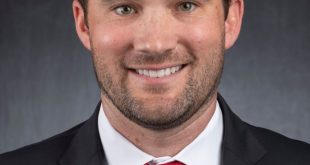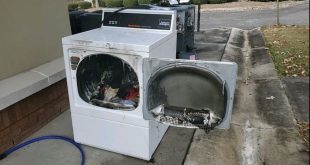Those hoping that the Georgia State Legislature has come to an agreement on a new HOPE plan will have to wait a bit longer.
The Senate approved House Bill 326 on Tuesday, voting for cuts to the HOPE scholarship that would apply to all but the highest achievers as well as other cuts to avoid drying up all of the program’s funds. However, due to changes proposed by the Senate, the bill must now return to the House for another vote.
Changes put into effect by HB 326 would take place as early as next year. By then, students would receive HOPE funding based not on their tuition, but on the actual revenue generated by the Georgia lottery, thus funds received could vary each year.
The scholarship would no longer cover books, for which students currently receive $150 each spring and fall semester.
Mandatory fees would also no longer be covered; the current coverage is frozen at the 2004 level of $324, Doug Tanner, director of financial aid said.
Under the proposed bill, students will still have to maintain a 3.0 GPA to get HOPE, but tuition would not be fully covered. For this fall, students with at least a 3.0 would only have 90 percent of current tuition rates covered.
HB 326 also limits students’ chances to regain HOPE. Currently, students who have lost the scholarship have unlimited chances to regain it, but HB 326 would allow only one.
Brennan Byrd, a sophomore dance major, understands the reasoning behind some of the proposed cuts.
“Since the lottery money is decreasing, [HOPE] should be downsized so it’s more specific,” she said. “The smarter people and the people who work hard on their grades should get more money.”
Other VSU students have not responded so favorably to these proposed cuts.
“It’s going to make it a lot harder for kids to go to school,” Grant Atwell, a sophomore political science major, said. “It’s hard enough as it is. All I can say for the future is there will be a lot fewer college students. I’ve heard a lot of people say that without HOPE they wouldn’t be in school.”
Though HOPE has been cut severely, Senators’ intentions are not malicious and students are not being ignored.
“It is a question of fairness,” Sen. Jason Carter, D-Decatur, said in an article in the Atlanta Journal-Constitution. “There is no doubt that that if we cut HOPE…there will be some students who won’t graduate from college because they can’t afford it.”
Sen. Jim Butterworth, R-Cornelia and chairman of the Higher Education Committee, acknowledged that though no bill is perfect, this amended bill is close.
“We are fixing this bill for generations,” he said in an AJC article. “We are not losing HOPE.”
Other programs have been proposed to help students who need financial assistance to attend college in light of the HOPE cuts.
The AJC reported that $10 million will be set aside by Gov. Deal and other lawmakers to allow for a low-interest loan program, administered by the Georgia Student Finance Commission. The program is based on one passed in 2008 that was never funded. Though there are currently no specific references to income level requirements, the program has been described as needs-based. The interest rate would be set at 1 percent.
In the event that student demand exceeds the amount of money allocated to the program, a score sheet will be used to decide the recipients based on factors that could include financial need.
Students eligible for the loan program must graduate from high school with a 2.5 GPA and maintain a 2.0 throughout college.
Students who go on to teach math, science, technology or engineering in public schools in Georgia will have one year of the loan forgiven for each year spent teaching.
According to Tim Connell, Georgia Student Finance Commission president, the commission has a board meeting in May where rules will likely be approved in order to have the first cycle of money awarded in July.
 The Spectator The independent student newspaper of Valdosta State University
The Spectator The independent student newspaper of Valdosta State University






Hope scholarship programs are funded in Georgia, South Carolina, and Tennessee; however, the eligibility and renewal requirements are different for each. More information on these programs can be found at http://www.hope-scholarship.net